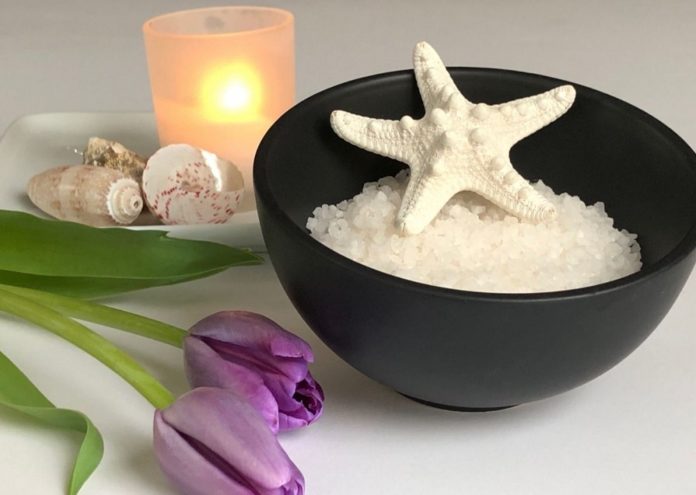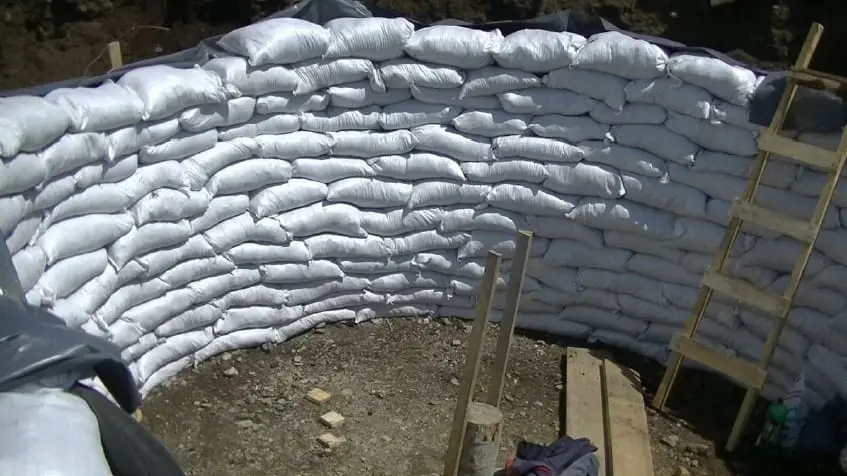SHTFPreparedness may collect a share of sales or other compensation from the links on this page.
It’s a product that everyone should keep in their home, particularly preppers who should know the value of having versatile equipment and products which can fulfil many roles very effectively.
This can not only save space for more supplies but can make it much easier to keep track of your inventory and manage your resources, helping you to be a more organised prepper and thus better prepared for whatever eventuality occurs.
In this guide we’re going to look at some details about Epsom salts to help you decide if this is something you want to add to your prepping supplies, as well as a look at some of the potential uses and benefits of this product so you can get the most out of it.
But first let’s look at how quickly it expires.
Do Epsom Salts Expire?
Epsom salt, or magnesium sulfate as it is more officially known, has excellent longevity and will not lose its potency or usefulness as long as it is stored correctly. To do this, keep your salts dry and away from humidity as this can affect the salts and their consistency.
The good thing about salts like this is that they naturally repel bacteria and other unwanted microbes, so they won’t go mouldy or become contaminated in that way, as salt prevents growth of most organic matter.
This means that your salts will last a very long time, but how long? We’ll look at this in the next section.
How Long Can Epsom Salts Last?
Epsom salt doesn’t break down very much or lose effectiveness when stored somewhere dry and cool.
Even if your salt has an expiration date on the packaging, it will often remain effective for several years after this, even if it does become clumpy and hard. You can easily break it up into usable chunks and dissolve it very quickly and easily despite this, and no significant change to the performance of the salts will have occurred.
You can prevent the salts from getting hard by keeping them sealed in their packaging or in a waterproof, sealed container, however this isn’t essential and not doing this won’t have a major impact on its performance or longevity.
The salts do come in a few different versions however, some of which are intended for everyday home use, and some which are designed for industrial and agricultural use.
You can tell the household variants as they will have a drug facts area on the packaging or a USP label, meaning it is fine for home use and is sanctioned by the FDA.
Why Do Epsom Salts Expire?
Interestingly, the expiration date on the packaging of Epsom salt doesn’t mean it will become useless, and actually just means that the product should still look like it did when it was originally shipped and not have any of the clumps or issues that salts can develop after a very long time in storage.
While this hardness and clumping can be annoying it doesn’t have a major effect on the product so the expiration date is largely meaningless and only serves to make sure you’re getting a product that is relatively fresh and new.
What Are Epsom Salts Used For?
Epsom salts are used very commonly as a solution for body aches, to relieve various types of inflammation and help reduce stiffness and pain in different parts of the body.
Adding 2 cups of the salt to a bath and soaking in it for around half an hour is a great way to use the salts and benefit from the properties of the salt.
The magnesium in the salt can help reduce stress and provide relaxation by increasing serotonin levels when taking an epsom salt bath. It is thought that these salts can even improve circulation and lower blood pressure, as well as help regulate the natural electrolytes in your body. This can help your muscles function better and keep them working for longer and recover more quickly.
Soaking your feet in these salts can also help alleviate athletes’ feet, toenail fungus, body odors, rough skin, and ease pain in the feet.
Epsom salt can also be used as a laxative by using 1 teaspoon with 8 ounces of water, and following with plenty of water to prevent dehydration, cramps or stomach pain.
Salts can also be used to relieve sunburn by spraying a solution of 2 tablespoons of Epsom salt mixed with one cup of water, which will help reduce inflammation.
The salt can also help draw a stubborn splinter out by reducing swelling near the splinter which will make it less painful and difficult to remove.
You can also relieve poison ivy rashes by using a cold compress impregnated with Epsom salts on the affected area, and can stop itchy skin by mixing half a cup of warm water with half a cup of salt. This works great to help with bug bites and other small irritations.
Epsom salt is also great for cleaning kitchenware that needs a good scrub, and can also make an effective grout cleaning solution or bathroom cleaning solution if it is scrubbed into the filth, allowed to sit for around 10 minutes and then cleaned off.
You can also prevent slugs from attacking your plants by adding a small amount to your soil, but take care not to use too much or with certain plants as salt can be devastating to soil health.
Finally, it can also help clean out a stinky washing machine by running a hot cycle with a quart of vinegar and a cup of Epsom salt, removing filth and other gross things which build up inside washing machines.
Are There Side Effects to Epsom Salts?
Not really, Epsom salt is considered incredibly safe most of the time when used properly.
However some people may have stomach issues or bloating if using it as a laxative, so make sure to take it with plenty of water if you try this.
Some people can get a magnesium overdose if overusing the salt, which can lead to headaches and flushed skin, as well as nausea, so don’t overdo it!
Bonus: Root Cellar That Can Be Used as a Bunker
Do you remember the old root cellars our great-grandparents used to have? In fact, they probably built it themselves, right in their back yard.
If you want to learn how to build a backyard bunker like your grandparents had, without breaking the bank, then you need Easy Cellar.
Easy Cellar will show you:
- How to choose the ideal site
- Cost-effective building methods
- How to protect your bunker from nuclear blast and fallout
- How to conceal your bunker
- Affordable basic life support options
Easy Cellar will also reveal how a veteran, with only $421, built a small nuclear bunker in his backyard.





